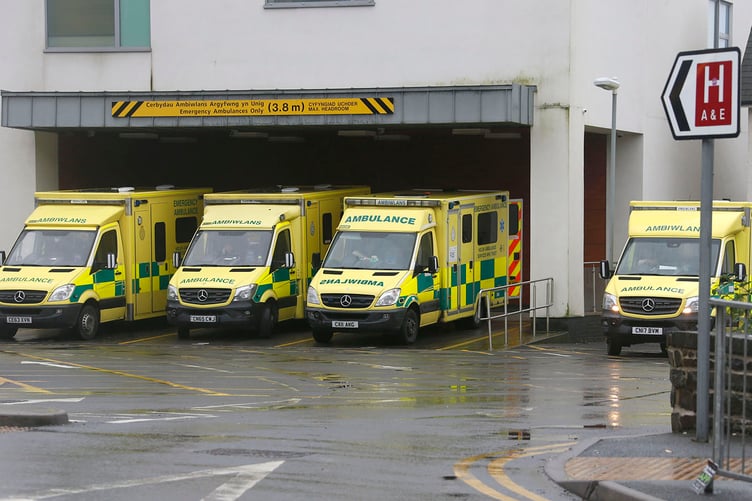The Welsh Government has called fresh NHS figures which show that waiting times are now the highest on record as “disappointing.”
The latest figures show that, in April, the number of patient pathways increased from just under 768,900 to just over 775,000, the highest figure on record.
There are now 602,900 individual patients on treatment waiting lists in Wales, the highest on record and 3,800 more than in March.
Two-year waits stand at 21,290 in Wales, the first time that the number has increased in over two years.
The average time patient pathways had been waiting for treatment at the end of April was 22 weeks, 0.2 weeks higher than the previous month.
Only 45.8 per cent of red calls - the most serious - received an ambulance response within eight minutes, a further drop from the previous month's 48 per cent.
A Welsh Government spokesperson said: “This is a disappointing set of NHS performance figures for April and May and shows we still have a long way to go to reduce long waits which built up during the pandemic, but it should be noted that these figures may have been affected by a reduction in activity during the Easter holiday period in early April.
“The overall waiting list has grown again and, after 24 months of consecutive falls, the number of people waiting more than two years for treatment has increased.
“We have made it a priority to reduce long waiting times and today the Cabinet Secretary for health has met with health board chairs to instruct them to redouble their efforts to tackle these and the significant variation across Wales.
“Unprecedented levels of demand are contributing however, with more new referrals in the latest year than ever before.
“April saw the second highest average daily new referrals for any month on record.
“These figures show the NHS is continuing to manage incredible demand for urgent and emergency care – the number of immediately life-threatening 999 calls in May was 25 per cent higher than the previous year and demand is nearly two-and-a-half times higher than pre-pandemic levels.
“More people received a response within eight minutes compared to May last year but ambulance response times are still not where we, the ambulance service or the public want them to be.”
“We will continue to support our incredibly hard working NHS staff as they provide life-saving and life-changing care.”





Comments
This article has no comments yet. Be the first to leave a comment.